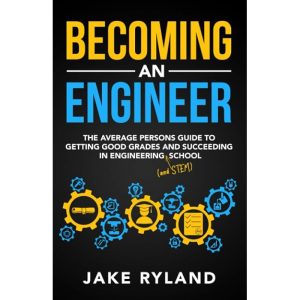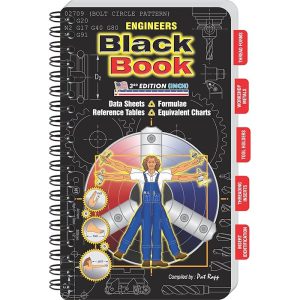Description
“Engineering for Teens” is a broad topic, but it generally refers to introducing young people, particularly teenagers, to the fundamentals of engineering. This can be done in a variety of ways, such as through hands-on projects, learning about different branches of engineering, and understanding how engineering impacts the world. Here’s an overview of how you can approach engineering for teens:
### 1. **What is Engineering?**
– **Definition**: Engineering is the application of science, mathematics, and creativity to solve problems and build solutions that improve people’s lives.
– **Key Disciplines**:
– **Civil Engineering**: Designing and building infrastructure like bridges, roads, and buildings.
– **Mechanical Engineering**: Designing machines, engines, and tools.
– **Electrical Engineering**: Working with electricity, electronics, and power systems.
– **Chemical Engineering**: Using chemistry to create processes and products (like pharmaceuticals or fuels).
– **Computer Engineering**: Developing hardware and software systems, often overlapping with computer science.
### 2. **Why Should Teens Explore Engineering?**
– **Problem-Solving Skills**: Engineering teaches how to break down complex problems and find solutions, a valuable skill in all areas of life.
– **Career Opportunities**: Engineering is a broad field with high demand in areas like tech, construction, aerospace, and renewable energy.
– **Creativity**: Engineering often involves innovative thinking and designing new products or systems.
– **Hands-on Learning**: Many engineering projects involve building or testing prototypes, which can be a fun and rewarding way to learn.
### 3. **Ways to Explore Engineering as a Teen**
– **STEM Clubs**: Join a school or community STEM (Science, Technology, Engineering, Math) club. These often have engineering challenges, robotics teams, or design competitions.
– **Online Courses and Tutorials**: There are many free resources to learn engineering basics:
– **Khan Academy** (for basic engineering concepts)
– **Coursera or edX** (offering free courses from universities like MIT and Stanford)
– **YouTube Channels** (such as “Engineering Explained” or “Mark Rober’s Engineering Projects”)
– **Engineering Kits and Tools**: Many companies offer kits that allow teens to experiment with engineering concepts. These might include:
– **LEGO Mindstorms** (robotics and coding)
– **LittleBits** (electronics and circuitry)
– **Arduino** or **Raspberry Pi** (coding and building devices)
– **Maker Fairs and Competitions**: Look for local or national events like Maker Fairs, robotics competitions (e.g., FIRST Robotics), or science fairs. These events give teens a chance to build and showcase engineering projects.
### 4. **Project Ideas for Teens to Try**
– **Build a Simple Bridge**: Test different materials (wood, paper, plastic) to build a bridge that holds weight. This introduces concepts of structural engineering.
– **Design a Solar-Powered Car**: Use solar panels to power a small vehicle. This combines electrical engineering with environmental science.
– **Create a DIY Circuit**: Use a breadboard to create simple circuits (like lighting up an LED or creating a buzzer system). This is a good introduction to electrical engineering.
– **Make a Catapult or Launching System**: Build a catapult to learn about mechanical engineering principles like force, tension, and torque.
– **3D Printing Projects**: Learn to design and print objects using CAD software and a 3D printer.
### 5. **Important Skills to Develop**
– **Mathematics**: Engineering is based heavily on math, especially algebra, geometry, and calculus.
– **Critical Thinking**: Engineers need to be able to think critically to troubleshoot and solve complex problems.
– **Collaboration and Teamwork**: Many engineering projects require working in teams, which is an important skill for the future.
– **Communication**: Being able to explain and present engineering ideas clearly (both in writing and verbally) is key.
### 6. **Educational Pathways in Engineering**
– **High School Level**: Take math and science courses, including physics and calculus if possible. Participating in extracurricular activities related to engineering (like robotics clubs) is also helpful.
– **College/University**: Pursuing an undergraduate degree in engineering (such as a Bachelor’s in Mechanical Engineering, Electrical Engineering, etc.) typically requires strong math and science backgrounds.
– **Internships**: Some companies and universities offer internships or summer programs for teens interested in engineering.
### 7. **Exploring Future Trends in Engineering**
– **Sustainable Engineering**: Engineering solutions to address climate change, renewable energy, and environmental issues.
– **Robotics and Automation**: The development of autonomous systems, drones, and robots.
– **Artificial Intelligence (AI) and Machine Learning**: Integrating smart technologies into products and systems.
– **Space Exploration**: Engineering innovations used in spacecraft, satellites, and space missions.
### 8. **Resources for Teen Engineers**
– **Books**:
– “The Manga Guide to Physics” by Hideo Nitta (a fun, visual way to learn physics concepts)
– “Engineering for Teens: A Beginner’s Guide” (many general books available at bookstores or libraries)
– **Websites**:
– **Tinkercad** (a free, user-friendly online 3D design and modeling tool)
– **Instructables** (step-by-step guides for engineering projects)
– **Apps**:
– **Khan Academy** (free educational courses on various engineering topics)
– **Fritzing** (a tool for designing electronics projects)



















Reviews
There are no reviews yet.